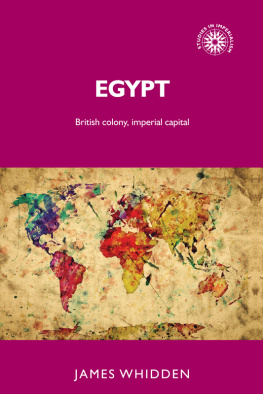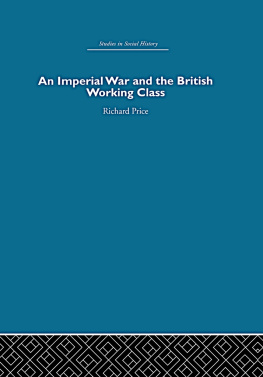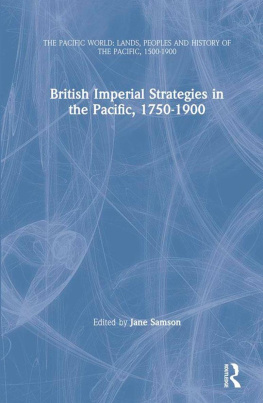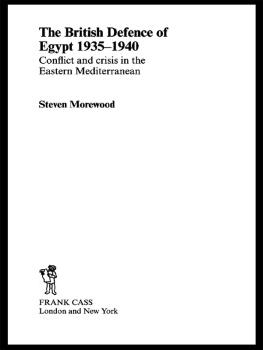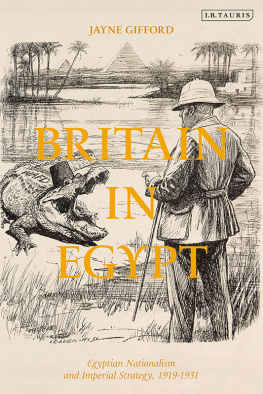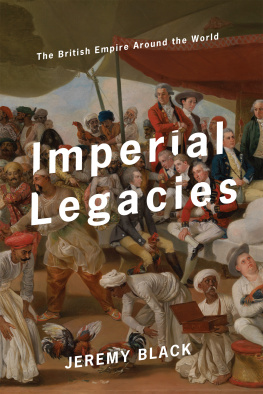General editor: Andrew S. Thompson
Founding editor: John M. MacKenzie
When the Studies in Imperialism series was founded by Professor John M. MacKenzie more than thirty years ago, emphasis was laid upon the conviction that imperialism as a cultural phenomenon had as significant an effect on the dominant as on the subordinate societies. With well over a hundred titles now published, this remains the prime concern of the series. Cross-disciplinary work has indeed appeared covering the full spectrum of cultural phenomena, as well as examining aspects of gender and sex, frontiers and law, science and the environment, language and literature, migration and patriotic societies, and much else. Moreover, the series has always wished to present comparative work on European and American imperialism, and particularly welcomes the submission of books in these areas. The fascination with imperialism, in all its aspects, shows no sign of abating, and this series will continue to lead the way in encouraging the widest possible range of studies in the field. Studies in Imperialism is fully organic in its development, always seeking to be at the cutting edge, responding to the latest interests of scholars and the needs of this ever-expanding area of scholarship.
Egypt
Selected Titles Available in the Series
WRITING IMPERIAL HISTORIES
ed. Andrew S. Thompson
EMPIRE OF SCHOLARS
Tamson Pietsch
HISTORY, HERITAGE AND COLONIALISM
Kynan Gentry
COUNTRY HOUSES AND THE BRITISH EMPIRE
Stephanie Barczewski
THE RELIC STATE
Pamila Gupta
WE ARE NO LONGER IN FRANCE
Allison Drew
THE SUPPRESSION OF THE ATLANTIC SLAVE TRADE
ed. Robert Burroughs and Richard Huzzey
HEROIC IMPERIALISTS IN AFRICA
Berny Sbe
Egypt
British colony, imperial capital
James Whidden
MANCHESTER UNIVERSITY PRESS
Copyright James Whidden 2017
The right of James Whidden to be identified as the author of this work has been asserted by him in accordance with the Copyright, Designs and Patents Act 1988.
Published by MANCHESTER UNIVERSITY PRESS
ALTRINCHAM STREET, MANCHESTER M1 7JA
www.manchesteruniversitypress.co.uk
British Library Cataloguing-in-Publication Data
A catalogue record for this book is available from the British Library
ISBN978 0 7190 7954 2hardback
First published 2017
The publisher has no responsibility for the persistence or accuracy of URLs for any external or third-party internet websites referred to in this book, and does not guarantee that any content on such websites is, or will remain, accurate or appropriate.
Typeset
by Toppan Best-set Premedia Limited
Egypt was always highly anomalous within the structures of nineteenth-century European imperialism. While it had become effectively independent from the Ottoman Empire, European states often continued to treat it as continuing to lie within the orbit of Ottoman imperial power. As it was progressively drawn into the mesh of trading relationships in the eastern Mediterranean, it was also sucked into highly expensive modernist ambitions in the provision of infrastructure, aspects of urban and rural change, as well as civil, military and economic institutions that would enhance the opportunities of its ruling elites to match European models. These developments, as well as longer-term trading relationships, served to pull in a striking range of settlers and sojourners of a variety of ethnicities, creating complex social and cultural patterns, particularly in its major cities. Although the British expatriate community was never numerically dominant among these immigrants, British trading and financial power, initially in league with the French, came to predominate. This constituted the background to Egypt's inevitable centrality in British strategic and economic concerns after the opening of the French-built Suez Canal in 1869. Financial destabilisation and nationalist revolt triggered the British invasion of 1882, after which it became effectively a British colony, backed by a considerable British garrison.
Despite all this, Egypt was never a colony in any formal or constitutional sense. While it was regarded as the key to the Middle East and the vital staging post to the British Indian, Australasian, Indian Ocean, and (progressively) East African empires, it was never formally engrossed into imperial structures, except for the period from 1914 to 1922, when the exigencies of war led its being declared a Protectorate. Apart from those years, it was often described as the veiled Protectorate, operating by a series of fictions, including attempts at a form of internationalisation, but more significantly through the activities of British advisers who in reality exercised a good deal of executive authority through the Egyptian structures of theoretical royal authority and ministers. As it had been throughout history, it remained the pivotal point between Europe, Africa and Asia. It also became a vital test case in the interplay of foreign influences, indigenous nationalism, and in the survival and transformation of a traditional regime and the elites associated with it. All of this set up the stresses and strains that were exacerbated by twentieth-century world wars, by the decline of British power, and by the emergence of modern Middle Eastern conflicts, culminating in the Suez crisis of 1956. All of this has ensured the prominence of Egypt within a political, diplomatic, and military historiography.
The fascination of modern historians follows some of the obsessions of nineteenth- and early twentieth-century travellers, intellectuals, and writers. A combination of characteristics ensured the prominence of Egypt in the tourism of European elites, in the work of travel writers, novelists, and others. Egypt's cultural centrality was of course closely bound up with its geographical significance. The relative proximity of Egypt to Europe ensured easy access for Europeans. They shared an enduring fascination with its antiquities as one of the cradles of ancient civilisation, as well as its notable connections with the Greco-Roman world. Napoleon's expedition, the work of his savants, and the entry of Egyptian styles into European aesthetics not to mention the eagerness of European museums to acquire Egyptian artefacts of all sorts helped to stimulate all of this.
This book by James Whidden sets out to bring these related phenomena together. In his innovative approach, he has undertaken to consider the wide-ranging historical controversies about Egypt and imperialism in the light of the modern Orientalist debate. More significantly, he surveys the imperial and indigenous conflicts over the status and political formations of Egypt against the background of the social and cultural life of the expatriate communities, particularly the British. To do this, he brings together a range of sources, including memoirs, novels, diaries, letters, and a striking range of archival material, some of it hitherto unused, to build up a remarkably vivid account of the ways in which the lives and predilections of resident expatriates and observers in Egypt, commercial, professional, scholarly, and political, influenced the struggles over its status and future. The result is a richly textured work which sheds fresh light on imperial Egypt. The relationship between the British and Egypt was by no means a monolithic one. As well as being fractured into a variety of approaches, it was also a matter of multiple voices reflecting multiple identities, all participating in a considerable debate. He concludes that expatriate communities in Egypt and the politics which they influenced possibly exhibited a degree of cultural porousness and exchange that may have mirrored some of the characteristics of the older khans (or protected trading posts) of the Levant writ large. The arrogance and apparently social and cultural exclusiveness of the British may have been a defence mechanism against a much more profound set of cultural interchanges than some expatriates would have recognised.



